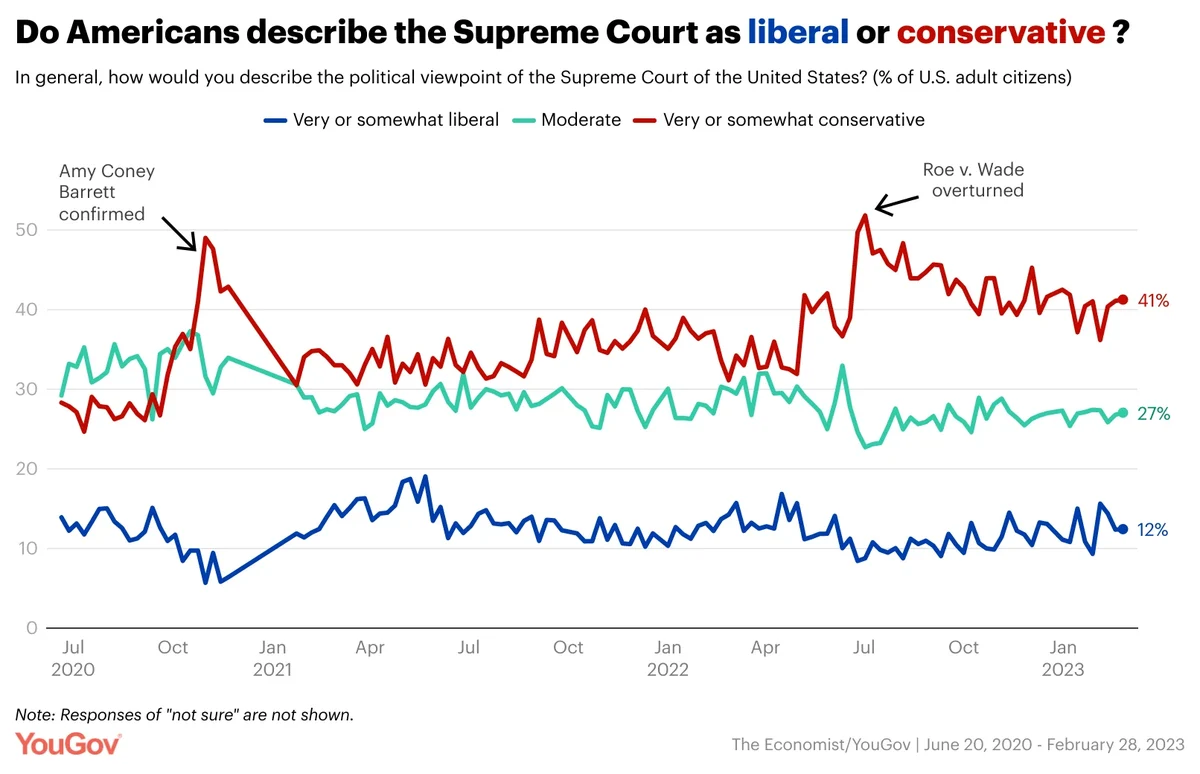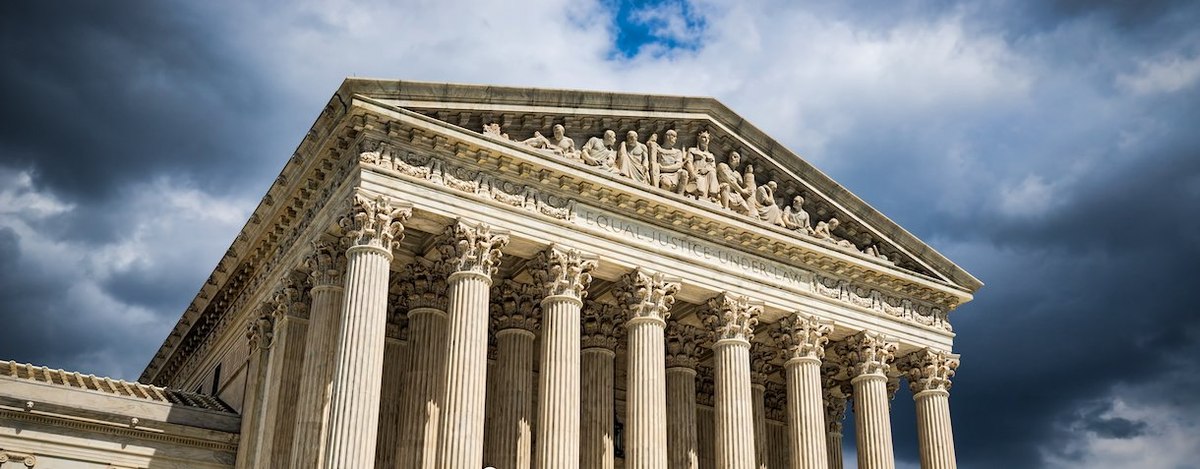Recent polling by the Economist and YouGov finds that most Americans think the U.S. Supreme Court has become politicized, with a majority believing that its decisions are frequently influenced by justices' personal political viewpoints. Many people see the court as conservative — more conservative than the American public. Democrats say they have less confidence in the Supreme Court, on average, than in the other two branches of the federal government. Far more Republicans, on the other hand, currently place trust in the judicial branch than in either the executive or legislative branches.
In polls conducted over the last few years, Americans have expressed concerns about how the Supreme Court operates. That continues to be the case today. By 62% to 38%, Americans believe the current justices "often let their own personal or political views influence their decisions" rather than "usually decid[ing] their cases based on legal analysis without regard to their own personal or political views." Three-quarters of Democrats (74%) and nearly half of Republicans (46%) say the justices often rely on personal views.
In regard to the political ideology of the Supreme Court, more Americans currently describe it as conservative (41%) than as moderate (27%) or liberal (12%). This has been the case for some time now, particularly since the court ruling overturning the landmark abortion-rights decision in Roe v. Wade in June 2022. In the immediate aftermath of that decision, an even larger share of Americans — 52% — described the court as conservative. But even in the two years leading up to the court's ruling on abortion, Americans were nearly always at least twice as likely to describe it as conservative than as liberal.

How do Americans compare the Supreme Court's ideology to that of the American public in general? Two in five (42%) believe the Supreme Court is more conservative than the American public, up 12 points from 2018. Just 18% say it is about in line with the ideology of the public, and 17% say it is more liberal. Americans who identify as liberal are especially likely to view the Court as more conservative than the rest of the country: 72% say it is, compared to 48% of moderates and 25% of conservatives.
Nearly half of people (47%) say they have a great deal or a fair amount of trust in the judicial branch of the federal government, which includes the Supreme Court. This isn't far off from how Americans evaluate the other two federal branches, with 44% saying they have this amount of trust in the executive branch and slightly fewer — 37% — saying the same about the legislative branch.
Perhaps unsurprisingly, given the Supreme Court's current composition, Republicans are far more likely to have trust in the judicial branch than Democrats are (62% vs. 42%). The reverse is true for the executive branch, currently led by Democratic president Joe Biden: 73% of Democrats have at least a fair amount of trust in it, compared to 24% of Republicans. Members of both parties share similar views of the legislative branch, which is currently divided — with Republicans holding a majority in the House of Representatives and Democrats holding a majority in the Senate.
There has been some change in Americans' trust in the judicial branch since the prior presidential administration of Republican Donald Trump. Nearly 4 years ago, in 2019, the share of Americans with at least some trust in the judicial branch was 6 percentage points higher (53%) than it currently is (47%). Among Republicans, trust in the judicial branch fell 9 points, and among Democrats, it fell 5 points.
Related: American opinion on the Supreme Court is divided as a new term begins
— Carl Bialik and Linley Sanders contributed to this article
See the toplines and crosstabs from the Economist/YouGov poll conducted on February 25 - 28, 2023 among 1,500 U.S. adult citizens.
Methodology: Respondents were selected from YouGov’s opt-in panel using sample matching. A random sample (stratified by gender, age, race, education, geographic region, and voter registration) was selected from the 2019 American Community Survey. The sample was weighted according to gender, age, race, education, 2020 election turnout and presidential vote, baseline party identification, and current voter registration status. Demographic weighting targets come from the 2019 American Community Survey. Baseline party identification is the respondent’s most recent answer given prior to June 1, 2022, and is weighted to the estimated distribution at that time (34% Democratic, 31% Republican). The margin of error for the overall sample is approximately 3%.
Image: Adobe Stock (Bill Chizek)









